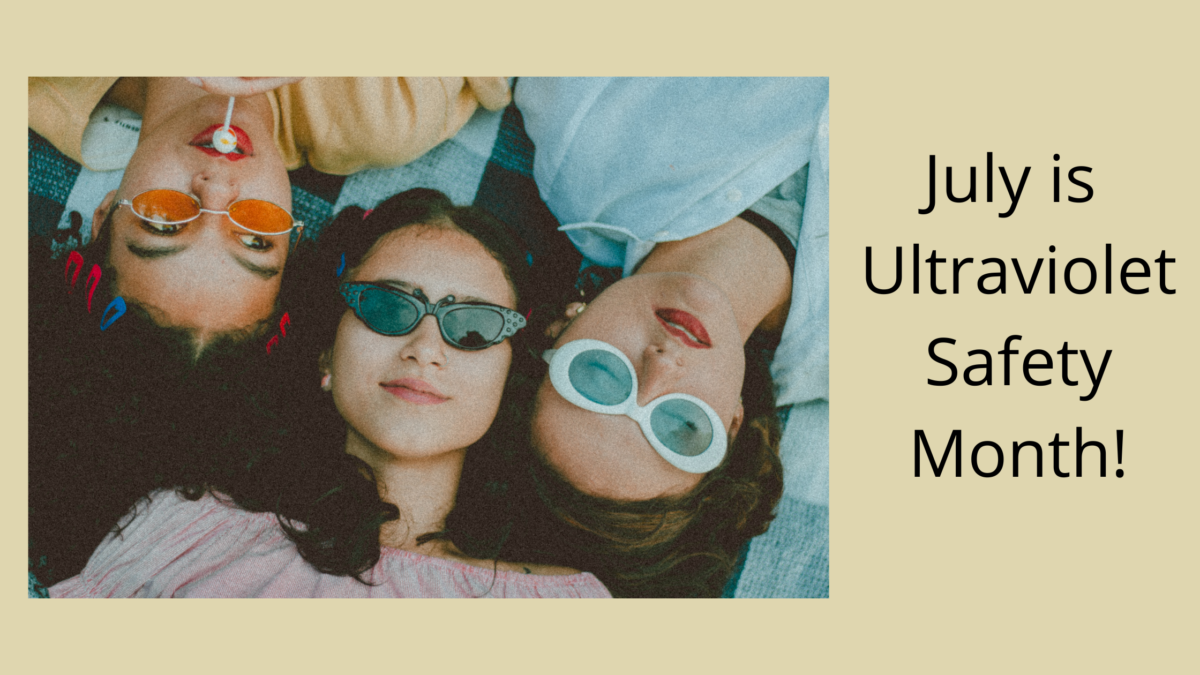July is UltraViolet Safety Month. Most of us are aware that it is important to protect our eyes and skin from the sun’s ultraviolet rays. Too much exposure to ultraviolet light can cause cancer and weaken the immune system. UV rays also cause painful sunburns and lead to premature aging of the skin. Because we live in a part of the country where the weather includes long, hot days for a significant portion of the year, it is particularly critical that we take appropriate precautions to limit UV exposure. Here are some of the ways that health officials recommend staying safe in the summer sun:
The American Academy of Dermatology recommends 3 primary tips for sun safety and to minimize the risk of skin cancer:
- Seek shade when appropriate
- Wear sun-protective clothing
- Apply a broad-spectrum, water-resistant sunscreen with an SPF of 30 or higher
An educational statement from the American Academy of Ophthalmology reports:
“Studies show that long-term exposure to bright sunlight may increase the risk of cataracts and growths on the eye, including cancer. UV rays reflected off sand and water can also cause eyes to sunburn, potentially resulting in temporary blindness in just a few hours.” The organization strongly recommends shielding eyes from the sun’s harmful rays with 100% UV-blocking sunglasses and broad-brimmed hats.
Here are several additional Summer Eye Protection Tips from The Eye Center – an eye surgery specialist group located in Alabama:
1. Wear the appropriate eye gear for outdoor activities – such as sunglasses on land or goggles in the pool. It is also a good idea to protect the eyes with goggles or a facemask while mowing the lawn, woodworking, or handling tools. Use gear that fits properly – being aware that kids may not be able to wear the same eyewear as adults. Eye protection not only limits UV exposure, but also may prevent dust, sand, or any other particulates from irritating the eyes.
2. Add a hat. – The wider the brim, the more of your skin will be protected from the sun’s UV rays.
3. Keep your contacts out of the pool. – The chemicals in pool water are potentially aggravating to eyes. It is also common to rub the eyes when emerging from the water, which can potentially cause the contacts to abrade eye tissue.
4. Wash your hands frequently. – During the summer you’ll likely be around more people, more often. And whether it is the swimming pool or a neighborhood barbeque, it’s inevitable that you’ll come in contact with not only the sun, but also sand or smoke or other environmental hazards. Be sure to wash your hands often to avoid contaminating your eyes with dirt, germs, or disease.If you don’t have immediate access to water, use hand sanitizer as a temporary alternative.
For further information about sun safety, including tips for optimal application of sunscreen and how to do skin cancer self-screenings, check out this post from WebMD. As they put it – “Sun safety is never out of season.”

